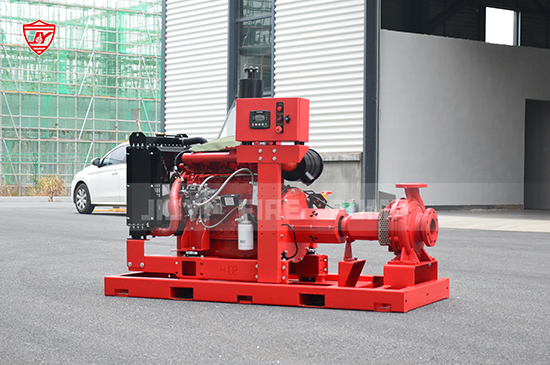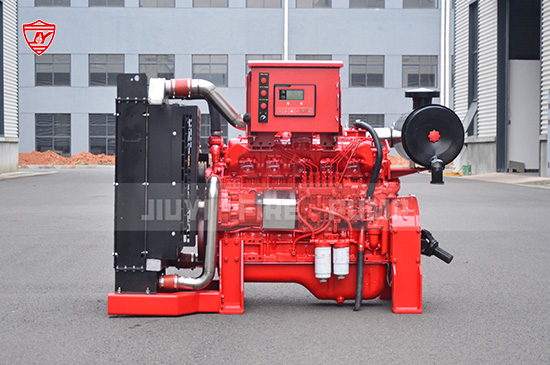When it comes to fire protection, compromise is not an option. Whether it's a high-rise building, industrial facility, or data center, fire pump systems play a pivotal role in safeguarding property and lives. While factors like cost, efficiency, and size are often discussed during procurement, reliability is the cornerstone of an effective fire protection strategy. Without it, even the most advanced fire pump system is merely a false sense of security.
This article will explore why reliability is the defining factor in fire pump selection, what contributes to a pump’s reliability, and how you can ensure your fire protection system stands ready when it matters most.

In the fire safety field, reliability refers to the consistent performance and operational readiness of a fire pump over time, especially under emergency conditions. A reliable fire pump is one that:
Starts immediately when triggered
Delivers required water flow and pressure
Operates continuously throughout a fire event
Complies with relevant codes and standards (like NFPA 20 or UL/FM certifications)
Unlike standard industrial pumps, fire pumps are not in regular operation. Their functionality is only tested during inspections or during an actual fire, which is why failure is unacceptable.
Fire pump systems are a building’s last line of defense. A single failure to start or deliver required water pressure can result in:
Delayed suppression of fire
Rapid escalation of fire damage
Fatalities or serious injury
Complete structural loss
NFPA 20 requires that fire pumps be selected, installed, and maintained to ensure "maximum reliability." Many insurance companies will only approve claims if the fire pump system was compliant and operational at the time of the incident.
Fires grow exponentially. A delay of even 60 seconds in water delivery can mean the difference between controlling a fire and watching it spread beyond recovery.
Facilities like hospitals, data centers, power plants, and oil refineries cannot afford a fire pump failure. Reliability becomes the single most critical selection criterion for such projects.
Choosing a reliable fire pump involves more than just selecting a reputable brand. Here are the key factors that impact system reliability:
UL Listed and FM Approved pumps are rigorously tested for reliability under extreme conditions.
NFPA 20 compliance ensures that the pump system adheres to global fire safety benchmarks.
Diesel Fire Pumps: Reliable in areas with unstable electricity supply but require more maintenance and regular testing.
Electric Fire Pumps: Lower maintenance and high reliability if power supply is stable and backed by emergency generators.
Jockey Pumps: Not fire pumps themselves, but they maintain system pressure and reduce main pump wear, indirectly supporting reliability.
Corrosion-resistant materials like bronze impellers or ductile iron casings improve longevity. Poor-quality materials can result in seal failure, motor burnout, or pressure inconsistencies over time.
An under- or over-sized pump can lead to:
Cavitation
Overheating
Inadequate pressure delivery
Frequent cycling—all affecting long-term reliability
Even the most robust fire pump requires regular testing. NFPA 25 mandates weekly or monthly pump tests depending on your system type. Neglecting this can render even the most advanced system unreliable.

When choosing a fire pump, the manufacturer plays a major role in the system's reliability. Here’s what to look for:
Choose manufacturers with installations in critical facilities like airports, government buildings, or oil refineries.
Manufacturers that provide pre-assembled, skid-mounted pump sets with controllers and piping reduce installation risks and improve reliability.
Reliable systems require reliable support. Ensure the supplier provides:
Startup commissioning
Troubleshooting assistance
Spare parts availability
Long-term maintenance services
Only select suppliers that conduct factory acceptance tests (FAT) on all units before shipping.
To ensure your fire pump system is dependable, follow these best practices: